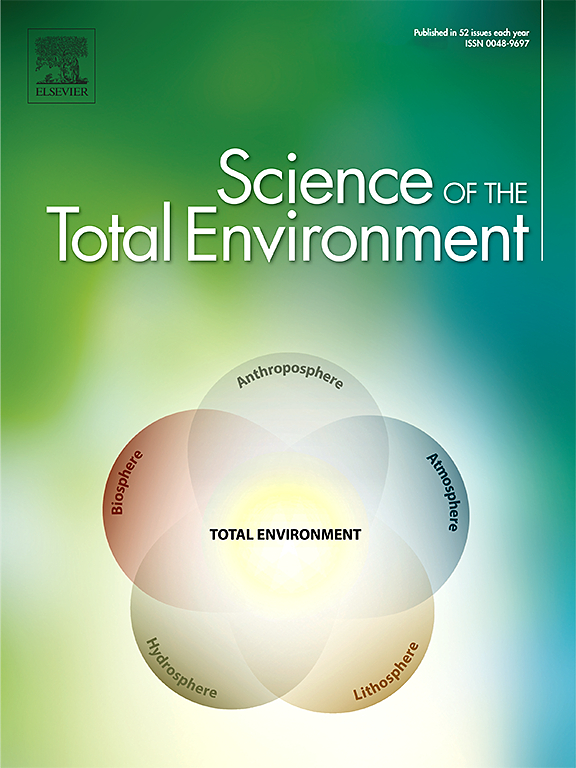Arbuscular mycorrhizal fungi inoculation and biochar application enhance soil carbon and productivity in wheat and barley
IF 8.2
1区 环境科学与生态学
Q1 ENVIRONMENTAL SCIENCES
引用次数: 0
Abstract
Influencing the global carbon cycle via modification to the terrestrial soil carbon pool has been suggested as one solution to help mitigate climate change. Cropping systems cover a vast expanse of earth's surface and represent a major carbon exchange point. Investigating management practices and biotechnologies capable of influencing soil carbon in cropping systems is thus a valuable endeavour, as even modest interventions have the capacity to increase carbon stocks and improve soil fertility and plant production. Arbuscular mycorrhizal fungi (AMF) are obligate biotrophs forming mutually beneficial relationships with a wide array of symbiotic partners. Increasingly, AMF are being investigated for their potential to enhance agricultural productivity through inoculation of soil and seeds with living propagules or spores. Beyond their positive influence on plant growth and resilience, AMF may have some capacity to influence the global carbon cycle through several conceptually recognised yet poorly understood mechanisms, warranting further exploration.
Here, we evaluate the potential of AMF as an inoculant to promote soil carbon sequestration in wheat and barley under greenhouse conditions. We assess the growth response of these crops and explore interactive effects of AMF with several organic amendments. Both wheat and barley exhibited a strong mycorrhizal growth response, with inoculation significantly increasing biomass (root and shoot dry weight) and productivity (head dry weight), especially under low nutrient conditions. Effects of AMF on soil carbon cycling were assessed through soil respiration, total carbon (TC) content, and easily extractable organic carbon. Inoculation significantly increased soil TC concentration in both the unamended control and the biochar-amended wheat treatments. We reveal evidence for a biochar + AMF carbon stabilisation pathway, whereby biochar may act to stabilise new fungal derived carbon inputs while reducing soil respiration. We discuss these results in the context of carbon credit generation and climate change mitigation potential.

求助全文
约1分钟内获得全文
求助全文
来源期刊

Science of the Total Environment
环境科学-环境科学
CiteScore
17.60
自引率
10.20%
发文量
8726
审稿时长
2.4 months
期刊介绍:
The Science of the Total Environment is an international journal dedicated to scientific research on the environment and its interaction with humanity. It covers a wide range of disciplines and seeks to publish innovative, hypothesis-driven, and impactful research that explores the entire environment, including the atmosphere, lithosphere, hydrosphere, biosphere, and anthroposphere.
The journal's updated Aims & Scope emphasizes the importance of interdisciplinary environmental research with broad impact. Priority is given to studies that advance fundamental understanding and explore the interconnectedness of multiple environmental spheres. Field studies are preferred, while laboratory experiments must demonstrate significant methodological advancements or mechanistic insights with direct relevance to the environment.
 求助内容:
求助内容: 应助结果提醒方式:
应助结果提醒方式:


